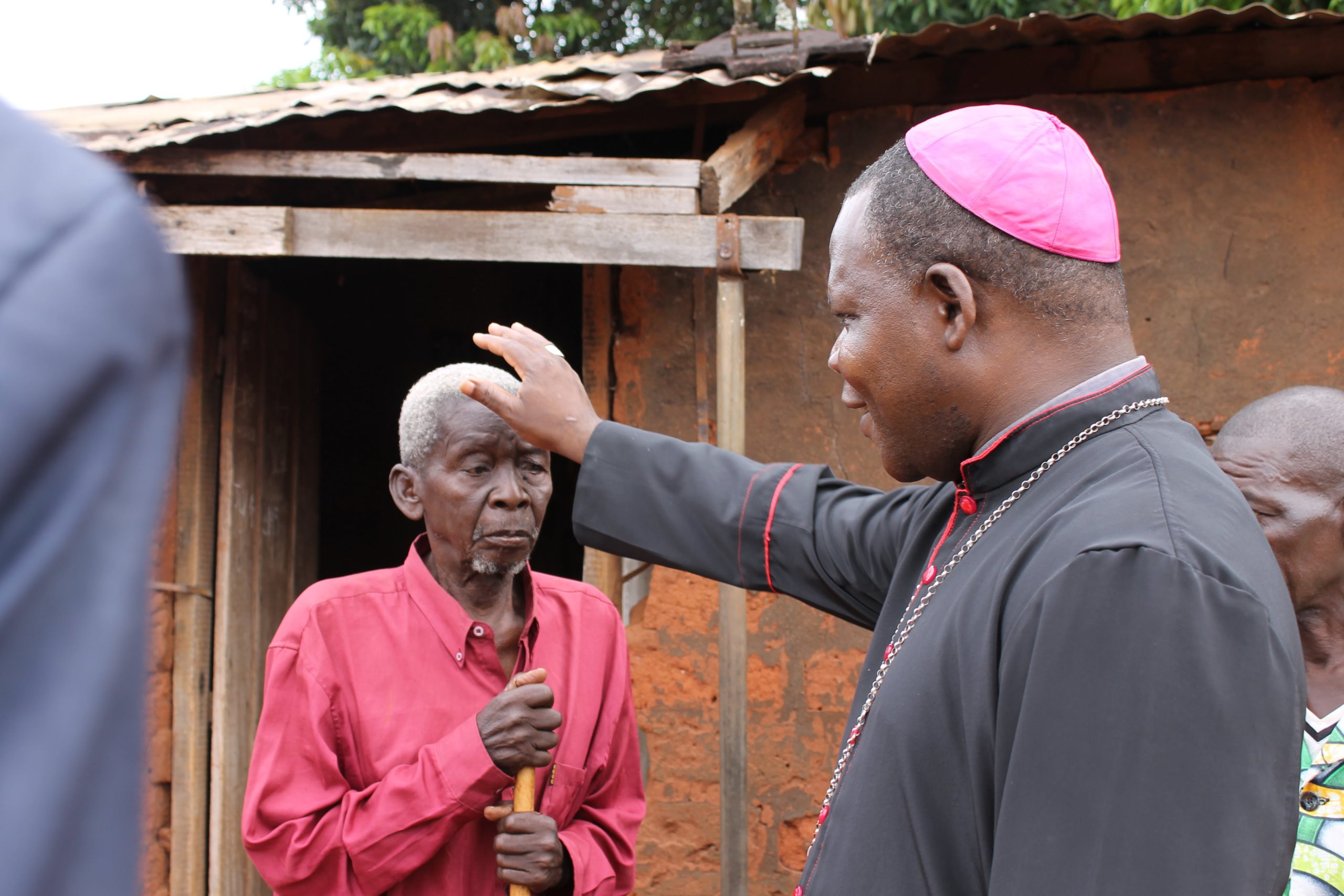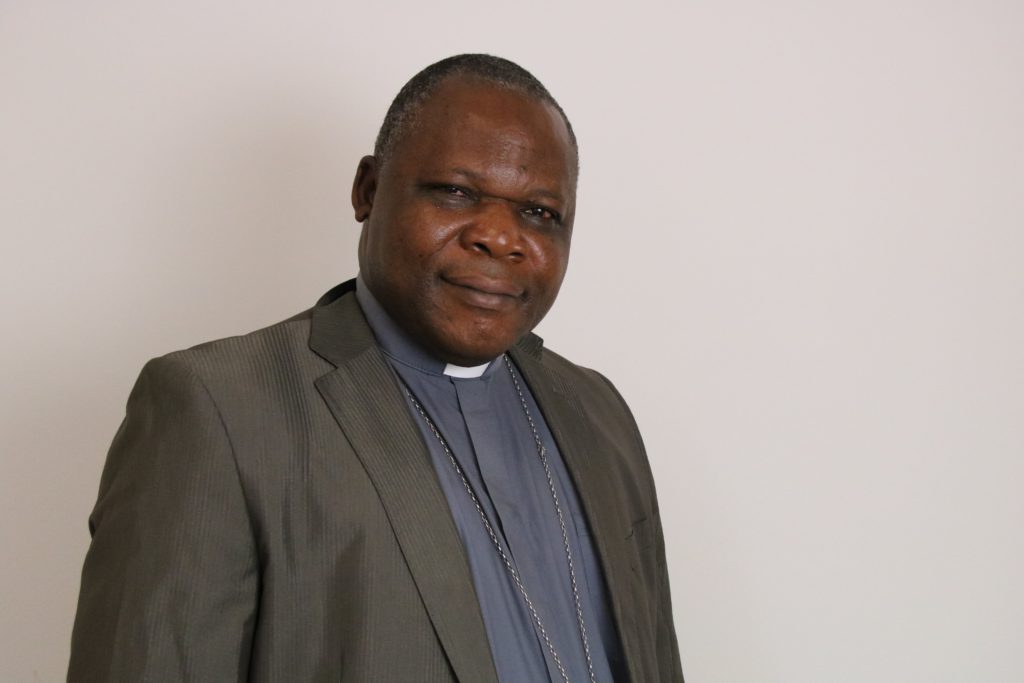During an interview at the international headquarters of the pontifical foundation Aid to the Church in Need (ACN), Cardinal Dieudonné Nzapalainga from the Diocese of Bangui spoke about the attitude which a Christian must have in the face of suffering as well as towards brothers in need. He also shared his experiences of the Synod on Synodality which took place in Rome this October.
In Central Africa you are confronted with a lot of suffering. And these days you get the impression that the world is sinking in suffering. How can you avoid being dragged down by this whirlpool of bad news?
As a Christian I must hear and see things differently. I see things through the light of hope. When people say: “There is no more hope,” Christians must say: “There is always hope.” You cannot let yourself be destroyed by the daily bad news and be enslaved by it. Christ has conquered evil! It’s not a case of denying reality, but of looking at it through the eyes of faith: there is a new birth taking place, and on the other side the new dawn is breaking. The Christian who crosses this valley of trials has to see that. You could say to me: “You are mad.” But in the face of the absurdity of suffering and evil, if I don’t have that strength, I will be dragged away in the waves, I will become like the others who are weeping. Christ said: “Come to me, all you who are weary and heavy laden” (Matthew 11:28). Often, we want to carry our problems all alone. But we have to lay them down in prayer. Our shoulders are not strong enough.

There is also the danger of becoming indifferent in the face of such suffering, the danger of turning away the head…
Yes, we have to be careful that our conscience is not numbed. Suffering has to be fought. Otherwise, we Christians no longer have any flavour. We must be the salt of the earth. Christ identified with the least, the abandoned. He came for the poor. The proof: He wasn’t born in a hotel or a four-star hospital! If I close my doors to a poor brother, a migrant, I have to ask myself: Am I still a Christian? Christ said: “Each time you did it to one of the least of these my brothers, you did it to me” (Matthew 25:40).
As Christians we have to let our hearts and our consciences speak. “What have you done with your brother?” (cf. Genesis 4:10). Through your baptism, you are responsible for your brother! Don’t hide.

You took part in the episcopal synod at the Vatican from 4 to 29 October, which marked the universal phase of the Synod on Synodality. Did people also speak about persecuted Christians there?
People spoke about it. And after the brothers from Sudan and from Ukraine spoke, there was applause, to show solidarity: We are with you!
The theme of the synod was: “For a synodal Church: communion, participation and mission”. Despite the differences of bishops from all over the world, did you feel this aspect of communion?
At the beginning of the synod there were lots of tensions, people expected divisions and conflicts. But the Holy Spirit came discreetly to calm spirits, to help us see each other as brothers and not as enemies. What changed the atmosphere a lot was the three-day retreat at the beginning. Then also the fact that during the synod we were sitting around a table and looking at each other. There were 36 tables around which were people of different nationalities. We had some round table discussions, we listened to each other, and when someone had spoken, we kept silence to take it in. When we had been around the table, we shared, then we voted – it was a secret ballot, and we felt completely free – to choose the theme which we were going to propose to the larger assembly.
That means that many of the themes tackled by the small groups were not submitted for discussion in the larger assembly. Were there frustrations?
If you really listen to the other, if you are humble, you receive a lot, because the Holy Spirit also passes through my brother. If you are not humble, one sees frustrations. I must decentralise myself, deprive myself: There is more than just my country. It’s not a case of defending my position; I submit my concerns, but I also listen to the others. The Church is not me alone, it is all of us. When you have voted on a theme, it is no longer my theme, it has become ours. That said, if you thought it was really necessary to tackle a theme which was not retained by the group you could always speak up in the larger assembly. But always with this concern: We have to build the Church of Christ and not my own Church! We are not working on our own agendas.
You seem very happy with what you experienced during the synod…
I come out of it enriched. And I have the impression that it was a new Pentecost for the Church. The Holy Spirit did His work to make my language a language of love understood by the other. Yes, the way of seeing things is very different in the different parts of the world. But Christ Himself prayed: “That they all may be one, as you, Father, are in me, and I in you.” (John 17:21). God does not want uniformity but unity in diversity. In music harmony comes from diversity. The Holy Spirit works on us so that we are in harmony with Him. It’s important that the spirit of the world does not distance us from the Gospel. Our reference is not the world. If you want to be light or yeast, you must move towards Christ, towards His Word. The currents change, but Christ remains the same. He is the Alpha and the Omega.


